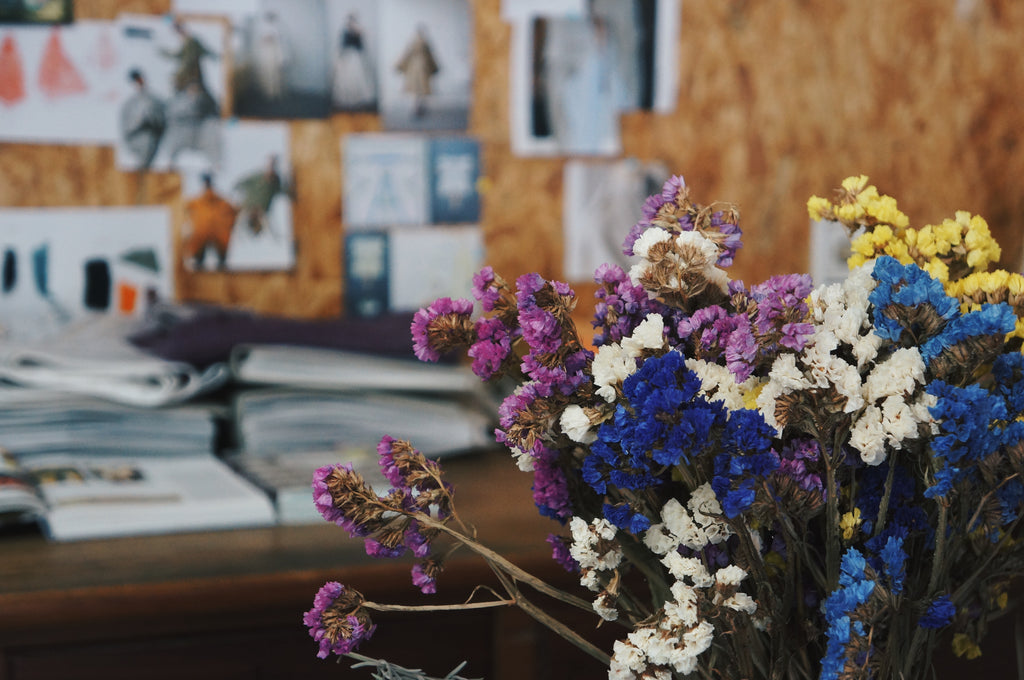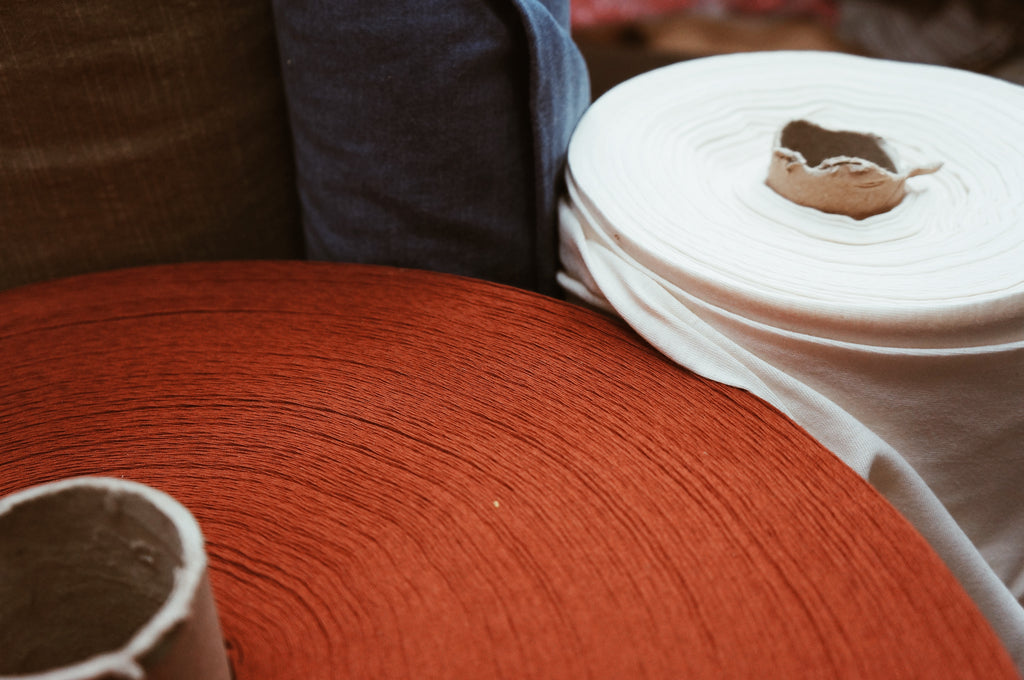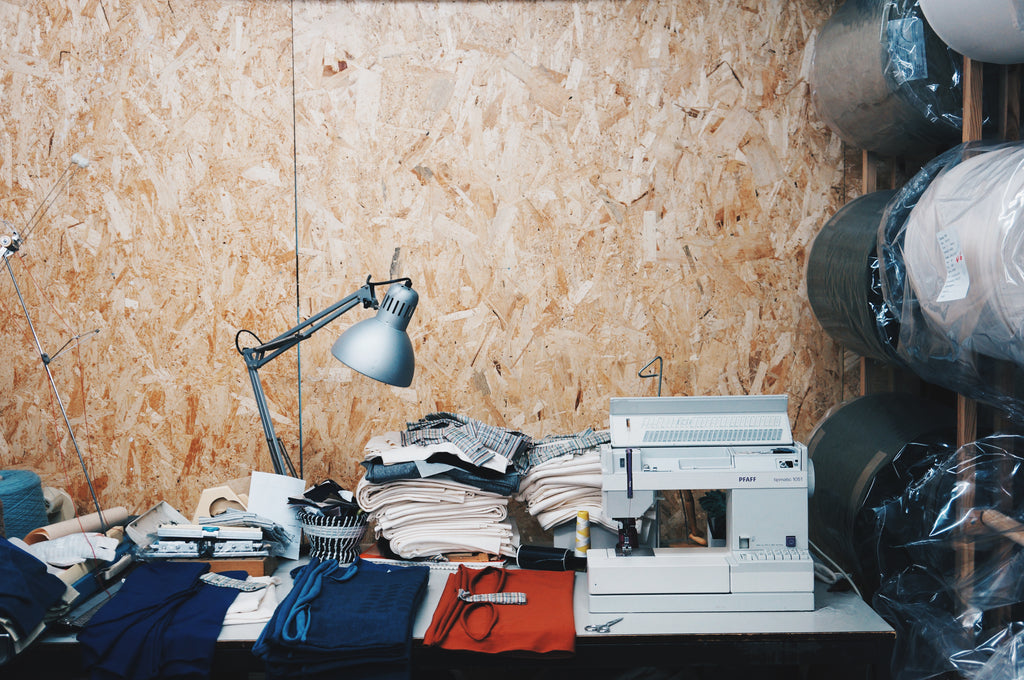Sustainable fashion is about more than just organic cotton. From the fabrics we source to the packaging we use, to the way we make our clothes, we’re working to minimize the negative impact the fashion industry has on our planet. We believe in slow fashion, buying fewer and better, sourcing materials with respect for the earth, transparent supply chains, and valuing the people involved at every stage of the production process.
Elementum pieces are designed as relationships. It is important to share with you all the connections they have, so that your relationship with your Elementum pieces will be as positive, slow, enjoyable and meaningful as it can be.
Our buttons …
The small details matters… our buttons are also recycled and biodegradable. Made from fibres of products used in the food industry and recycled paper.
Our buttons supplier, it’s a Portuguese factory with almost 50 years experience in the production of raw materials. Their last ten years resulted in an of careful research and technological innovations, they had produced a totally exclusive line of buttons made of recycled material, recycled real horn, natural vegetal fibres and biodegradable components.
When changing the little details on a garment, a simple button made of raw recycled materials can add a special and mindful value.
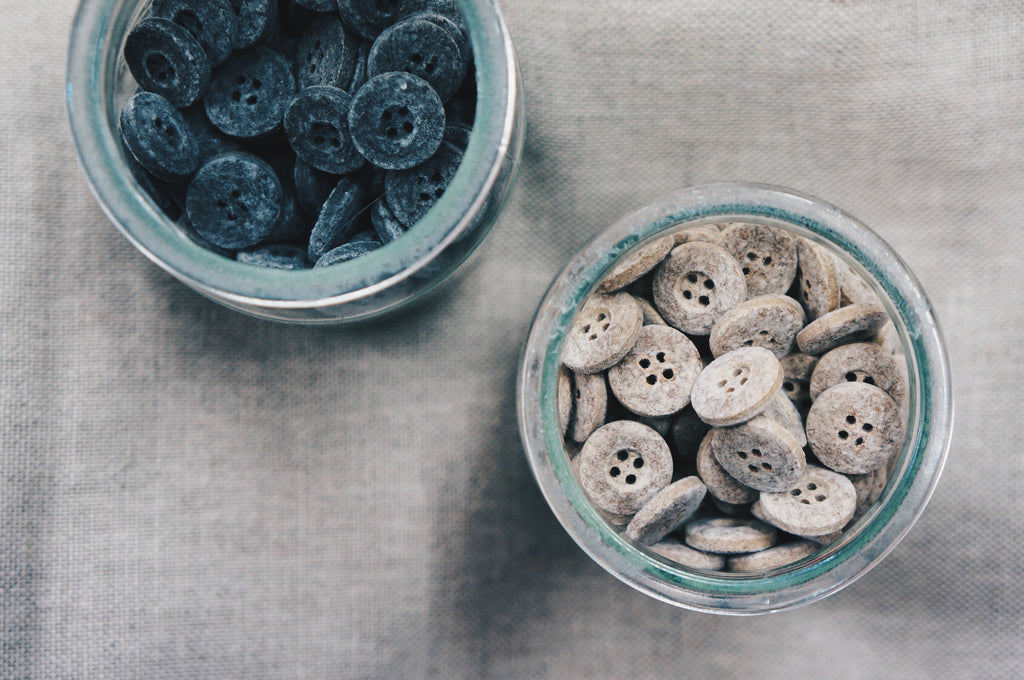
Our fabrics …
Our fabrics have a natural and refined touch. For our clothes, we use natural fibers, such as organic cotton, linen, hemp and other low impact manufactured fibers plant-based fibers like TENCEL™ and cupro. These require fewer resources to be produced, create less pollution, and decompose back into the earth far more quickly than synthetic fibers like polyester and nylon. Many of our fabrics are GOTS (Global Organic Textile Standard) certified. We work with high-quality materials that offer a lasting good fit and beautiful appearance.
Organic cotton
Organic cotton eliminates the use of toxic and persistent chemicals, improves soil health and increases water conservation. All of these qualities make it a better crop for the environment, and for the farmers and their communities. this motivated us to increase the amount of certified organic cotton that we use for our designs. Know more about our organic cotton here.
Lyocell and tencel
TENCEL™ branded lyocell and modal fibres are produced by environmentally responsible processes from the sustainably sourced natural raw material wood. These fibres are versatile and can be combined with a wide range of textile fibres such as cotton, polyester, acrylic, wool, and silk to enhance the aesthetics and functionality of fabrics. The unique physical properties of TENCEL™ Lyocell fibres lead to their great strength, efficient moisture absorption and gentleness to skin.
Linen
Linen is known for being the oldest natural fibre still in use today made from the stalks of the flax plant Linum. Linen is highly breathable, soft and a natural insulator. It's fibres are hollow, moving air and moisture naturally. It is valued for its ability to keep cool in the summer months and trap warmth in colder weather. This is all achieved through the natural properties of the fibre itself. The production of linen requires less water and fares better in terms of water toxicity. As a result, overall, the environmental impact of the linen (flax) garment is considered to be much lower than that of the cotton garment. Know more about our Linen here.
Cupro
Technically, it’s cotton, but from another part of the cotton plant, giving the resulting fabric a significantly different feel than typical cotton. The fiber itself is derived from cotton linter, which is the very fine, soft material that sticks to the cottonseeds and is left behind after the cotton has been ginned. Usually, these fibers are discarded, however, they are now recycled for the production of this surprisingly beautiful textile. Know more about our Cupro fabric here.
Hemp
Hemp fiber is very strong, and it will keep a good appearance for a long time. As a fabric, hemp provides all the warmth and softness of a natural textile but with superior durability that is seldomly found in other materials. Hemp is extremely versatile and can be used for countless products such as apparel, accessories, shoes, furniture, car and home furnishings. Apparel made from hemp incorporates all its beneficial qualities and will likely last longer and withstand harsh conditions. Know more about our Hemp here.
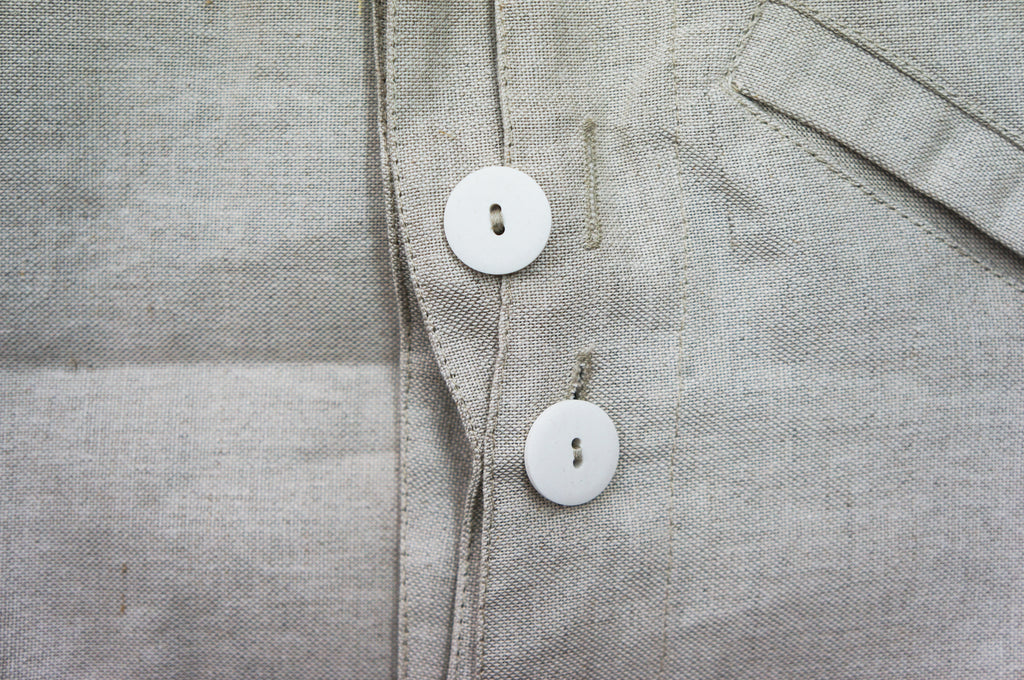
Our production …
Clothing production consumes resources and contributes to climate change. The raw materials used to manufacture clothes require land and water, and the eventual use of fossil fuels for transportation. Clothing production in factories involves processes which also require water and energy and use chemical dyes, finishes and coatings – some of which are toxic.
Elementum production is fair and close to home. We are based in Portugal, where we also do most of our production and manufacturing. Our production chain is highly simplified. We focus on positive collaborations with our suppliers and keep the process close to us. We produce our jersey pieces directly in our studio, our shirts are produced in a small atelier near to our workspace, and our 3D knitwear in family factory in the Netherlands, where we started out in 2008.
Know more about about our knitter here.
Then and now, our production is built around principles of Zero Waste, for the jersey garments we use tubular fabrics made in Portugal, with different widths for the different sizes. There is no cut off materials or leftovers, and we produce almost with no stitches at all. The only waste we can find are the small defects of fabric … and still we will use the maximum of these defects for our labels and ribbon that can be further used as a belt or lace.
In conventional tailoring, fabrics are manufactured in a square shape, then cut into round forms and sewn together. Producing in this way leads to leftovers of valuable resources. At Elementum, we make use of the complete fabric and incorporate minimum cuts in the fabric so that we can provide you with maximum use for your clothes.
Our latest line of woven garments is still not totally ZERO waste. That is because of the difference of flexibility in relation to the knitwear production. But we are working on converting all our designs into Zero waste patterns. In the meanwhile we reuse the little cutoffs into new products in our studio.
Know more about our Design studio here.
“… the more awareness we can bring to the stories behind our clothes, the more impact we can have across the fashion industry to raise its standards for the workers and for the environment. Your curiosity, your voice, and your shopping habits are more powerful than you know…”
- Fashion Revolution
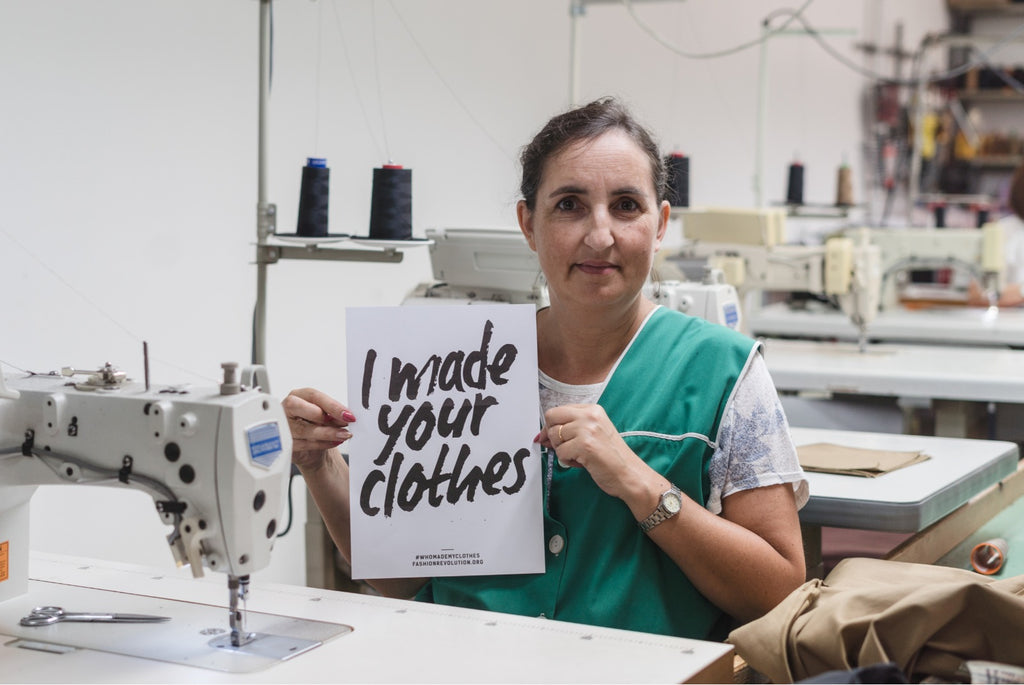
We produce our clothes with local Portuguese factories that offer good working conditions. Here's a view of our garment factory partner in Leiria. Know more about about our garment producer here.
In Elementum we apply the principles of sustainability in Fashion and we do so Ethically. So, Elementum is both Sustainable and Ethical clothing brand. We believe that sustainability is not about making products, but is about building relationships. With Elementum we design relationships that care for the impact of the materials we use, for the people who make our clothes, for those that will wear, care and enjoy the clothes we make.
Ultimately, our pieces are designed to stay with you for a long stretch of life. That is because of the quality of the fibers and the making process that we choose. More importantly it is also because of our pieces' multi-functionality and timeless, convertible and/or reversible design. This means that with time you will discover a “new” piece hiding in your Elementum piece. So, with Elementum you will have less clothes but more opportunities to dress differently. See more about the different ways of wearing/ multi-functionality here.

